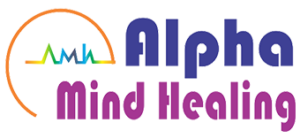Stress
Stress
The symptoms of anxiety tend to vary from person to person as it’s a highly subjective experience. Anxiety becomes pathological when it starts to interfere with an individual’s everyday life including their social, occupational, or other important areas of functioning. The feelings of anxiety are often accompanied by worried thoughts / tension, nervousness, panic or physiological symptoms such as palpitations, sweating, hyperventilation etc.

Self help: involves steps that an individual can take for self care, that may help in some less severe cases, for example, get enough sleep, learn about one’s triggers, practicing a healthy life style, journalling, aroma therapy, indulging in hobbies and interests, etc.
Treatments To Consider:
- Psychotherapy: Cognitive behavioral, exposure therapy, supportive and insight oriented psychotherapy approaches can be utilized to manage symptoms of anxiety.
Relaxation and bio-feedback are an essential part of the behavioral approach of treatment. - Prescribed medications: bennzodiazapines, beta blockers, MAO inhibiters, etc. are some of the commonly used group of drugs that can be prescribed by a psychiatrist to manage the symptoms.
- Vagus nerve stimulation: vagus nerve is connected to many areas of the brain, it has been studied as a way to indirectly deliver impulses to deeper areas without being invasive. Simple exercises like: three part breathing, cold water immersion, oral exercises, box
breathing, gargling, humming, etc. - Exercise: it triggers the release of certain chemicals in the brain, as well as help in channeling the excess or built up energy and/or restlessness due to anxious thoughts and feelings.
- Nutrition: studies have shown that adding certain foods that includes nutrients such as omega-3 fatty acids, zinc, magnesium, and vitamin B, and reducing intake of caffeine and
alcohol can help with the symptoms. - Relaxation Techniques: Many methods help people relax, including guided imagery
(listening to a script to visualize calm environments) and breathing exercises for slowing the heart rate and focusing thoughts. Another method, progressive muscle relaxation, involves tensing and releasing different muscle groups throughout the body.



